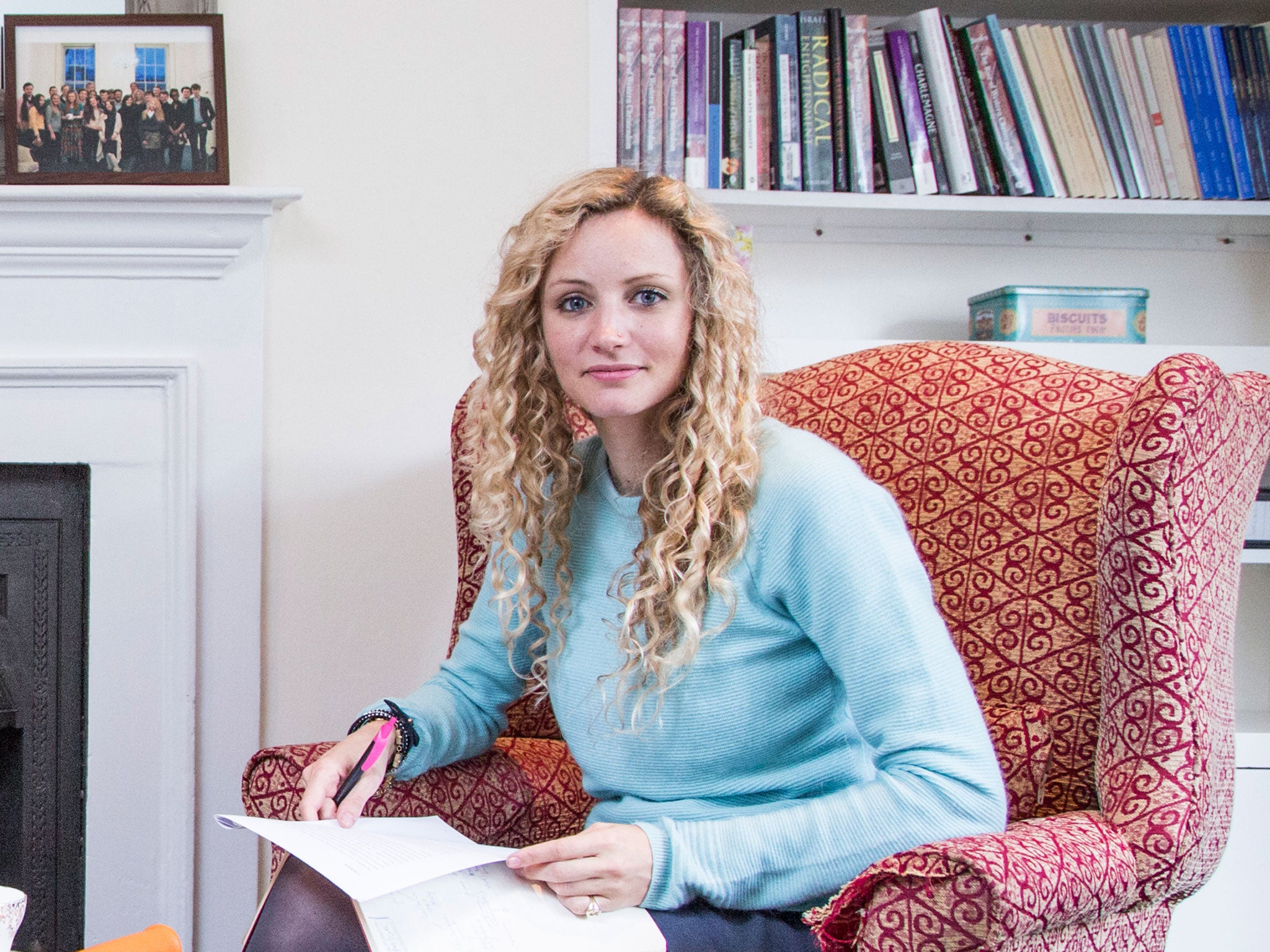Dr Suzannah Lipscomb interview: The historian on why Liszt was the first Beatle, and how Henry VIII became a tyrant
Lipscomb is a historian and TV presenter best known for presenting shows such as 'Hidden Killers of the Tudor Home' and writing books including '1536: The Year That Changed Henry VIII'

Your support helps us to tell the story
From reproductive rights to climate change to Big Tech, The Independent is on the ground when the story is developing. Whether it's investigating the financials of Elon Musk's pro-Trump PAC or producing our latest documentary, 'The A Word', which shines a light on the American women fighting for reproductive rights, we know how important it is to parse out the facts from the messaging.
At such a critical moment in US history, we need reporters on the ground. Your donation allows us to keep sending journalists to speak to both sides of the story.
The Independent is trusted by Americans across the entire political spectrum. And unlike many other quality news outlets, we choose not to lock Americans out of our reporting and analysis with paywalls. We believe quality journalism should be available to everyone, paid for by those who can afford it.
Your support makes all the difference.Sixteenth-century England has been totally overstudied It's what I thought when I first considered working on Henry VIII's court – but there are good reasons for its popularity. It's the first period where we really know what people look like, thanks to Renaissance portraiture; we can all instantly bring to mind that extraordinary picture of Henry VIII. And so much of what has defined our country dates from that time: Shakespeare, the Church of England, the way we use Parliament, the beginning of empire…
It seems possible that Henry VIII suffered brain damage In 1536, Henry VIII went from being athletic, accomplished, charismatic and good-looking – everyone liked him – to being fickle, irritable and ruthless. There was a crucial series of events that year, one being when he fell from his horse while jousting: he was unconscious for two hours. I can't prove brain damage, but it's possible. He never jousted again – it was the end of his active life and the beginning of his obesity.
People say Anne of Cleves was lucky to keep her head, but she must have had a terrible time She was written off as the ugly wife, who went quietly and was sensible about it. She was 24 when she came to England with great hopes about being Queen of England and what basically happened was that Henry groped her a bit, decided she wasn't a virgin and was fat and smelly – a clear case of transference – then dumped her. It must have been really demeaning for her. She was too humiliated to go home.
It is our light, not our darkness, that most frightens us It's part of my favourite Nelson Mandela speech, in which he also said, "Our deepest fear is not that we are inadequate… our deepest fear is that we are powerful beyond measure." There's nothing enlightening about shrinking so that other people won't feel insecure; we are supposed to manifest the glory of God that is in us. And when we let our light shine, we unconsciously give other people permission to do the same.
I probably drink too much I've decided to take it in hand, and for the first time I'm doing a dry January. It'll reduce my capacity for drinking, and then I've got another 11 months to work it back up to the previous point!
It would have been extraordinary to meet Mozart He was a nightmare by all accounts and very naughty. But he was also a genius. While we're talking composers, I'd like to have met Liszt, too: he played the piano very well and was good-looking: women would scream and faint like they did later with the Beatles.
People in India break all our rules about not staring I'm drawn to India – I've been seven times – and I love the Himalayan foothills. It's an incredibly beautiful landscape and there's something about the "otherness" there – just like the otherness of the past. But you have to learn to deal with the staring: If you are tall, female, blonde and travelling in India and someone stares at you, don't look back!
I'm addicted to buying books I can't go into a bookshop without buying one. I've had two floor-to-ceiling bookcases installed – one for the sitting room and one for the study – and they are full. I've got books piling up all over the place. In the end, there won't be room for anything else.
Dr Suzannah Lipscomb, 37, is a historian and TV presenter best known for presenting shows such as 'Hidden Killers of the Tudor Home' and writing books including '1536: The Year That Changed Henry VIII'. She is also head of faculty and senior lecturer in early modern history at the New College of the Humanities, London. Her free public lecture at the college, 'The Mystery of Henry VIII's Will', takes place on 22 February. For tickets: nchlondon.ac.uk
Join our commenting forum
Join thought-provoking conversations, follow other Independent readers and see their replies
Comments